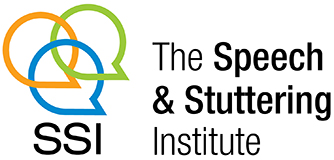 The Speech & Stuttering Institute is thrilled to share this essay by David, an inspirational young man who is passionate about sharing his experience in the hopes of spreading awareness and reaching other people who stutter (PWS), especially youth who may be feeling alone and hopeless.
The Speech & Stuttering Institute is thrilled to share this essay by David, an inspirational young man who is passionate about sharing his experience in the hopes of spreading awareness and reaching other people who stutter (PWS), especially youth who may be feeling alone and hopeless.
For the past year David has been raising awareness about stuttering through his Instagram stories and slideshows in hopes of further educating friends and peers about stuttering. As he says “I know people who stutter usually keep their struggles to themselves—as I did for over a decade—so I share my stuttering journey to show other PWS they’re not alone. Multiple younger students in my school have reached out to me to talk about their stuttering.”
We’re so happy for David and wish him the best as he starts a new and exciting chapter in his life at Western University in the coming fall. He hopes his story can inspire others, particularly teenagers, to embrace their stutter and never let it stop them from achieving their brightest goals and ambitions.
You can request to follow David’s journey on his instagram @_daivdliuuu
Breaking Free, One Word at a Time by David Liu
It was the first day of high school. My new classmates were going around the room introducing themselves, but all I could hear were my frantic thoughts and hammering heartbeat. How many more people are going to speak before me? What if I stutter again? Before I knew it, it was my turn to speak. “Hi, I’m D-d-d-d.” I contorted my face as I tried to say my name, but the words wouldn’t come out no matter how desperately I tried. When I finally managed to utter, “David,” I gasped and felt the blood rush to my cheeks. In horror, I looked around the room to see some of my classmates snickering; others simply looked confused, staring at me and unsure how to react.
I have had a stutter for as long as I can remember. Growing up, I was ashamed that I spoke differently, so I did everything I could to hide it. Whenever I met someone new, answered a question in class, or read aloud, I told myself I must not stutter. It dominated my thoughts, the worry and anxiety overwhelming almost every aspect of my life. I felt hopeless.
At some point, I could no longer bear the anxiety. I wanted to be freed from my stutter, which I saw as a defect in my speech, and I felt I could not do it alone. In the summer of 2020, I decided to share about my internal anguish with my parents, who supported me as I sought professional with a Speech Language Pathologist in a Fluency Program.
But if you’re someone who stutters, you’d probably agree that addressing the emotional burden of stuttering is equally if not more important than achieving fluency itself. I am incredibly thankful to my SLP for her guidance as I incorporated positive self-talk and stuttering disclosure in my life. I began to embrace my stutter by challenging myself to face previously uncomfortable situations. I joined DECA, a business competition in which I presented my solution to a real world scenario in front of a judge. I took the opportunity to speak to hundreds of parents and eighth-grade students about my school’s STEM program. In the end, I pushed through my fear of failure, and each success made me more confident in my speech, regardless of the stuttering.
I am now seventeen years old. I still stutter, but I have stopped resisting it. I can now speak freely about it to my family and friends. I realize my stutter is not a flaw in who I am, but a part of who I am. I have become more optimistic after witnessing my greatest struggle become a source of strength. I embrace diversity because I have accepted my stutter as a part of what makes me different and unique. I welcome challenges because I have seen how my stutter has helped me grow. It has shaped me in more ways than one.
Going forward, I will continue my involvement in various support groups. Whether someone has OCD, Tourette’s, or stuttering, everyone is bound by our common struggle of self-acceptance. By sharing my story, I hope to inspire others to embrace their differences and pursue their aspirations. Recently, I met a peer who also stutters and even inspired him to join DECA by sharing my own experiences.
One word at a time, I trained myself to get comfortable with the uncomfortable, rewiring my brain to believe it is okay to stutter. I have now accepted my stutter, and that renders it powerless. Fear is a stutterer’s self-imposed prison, and I have broken free.
